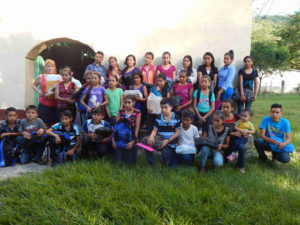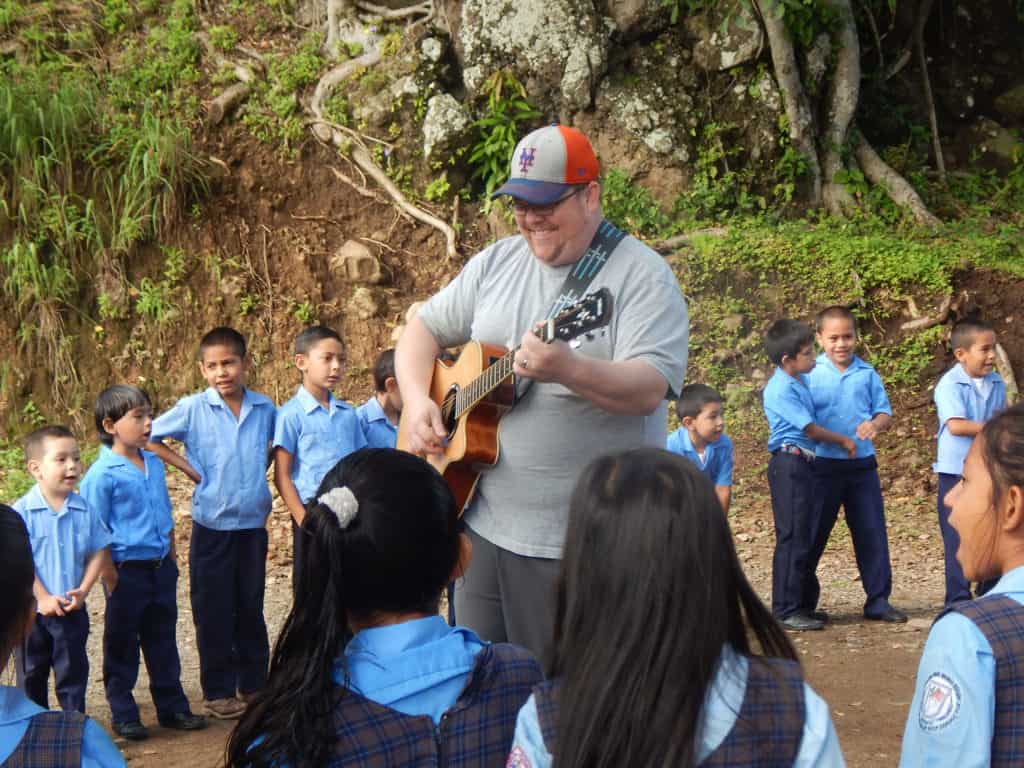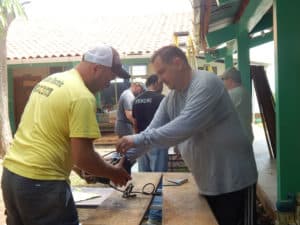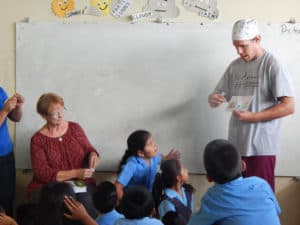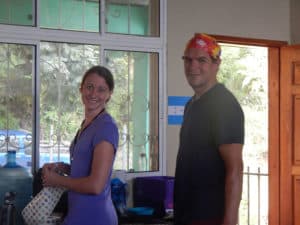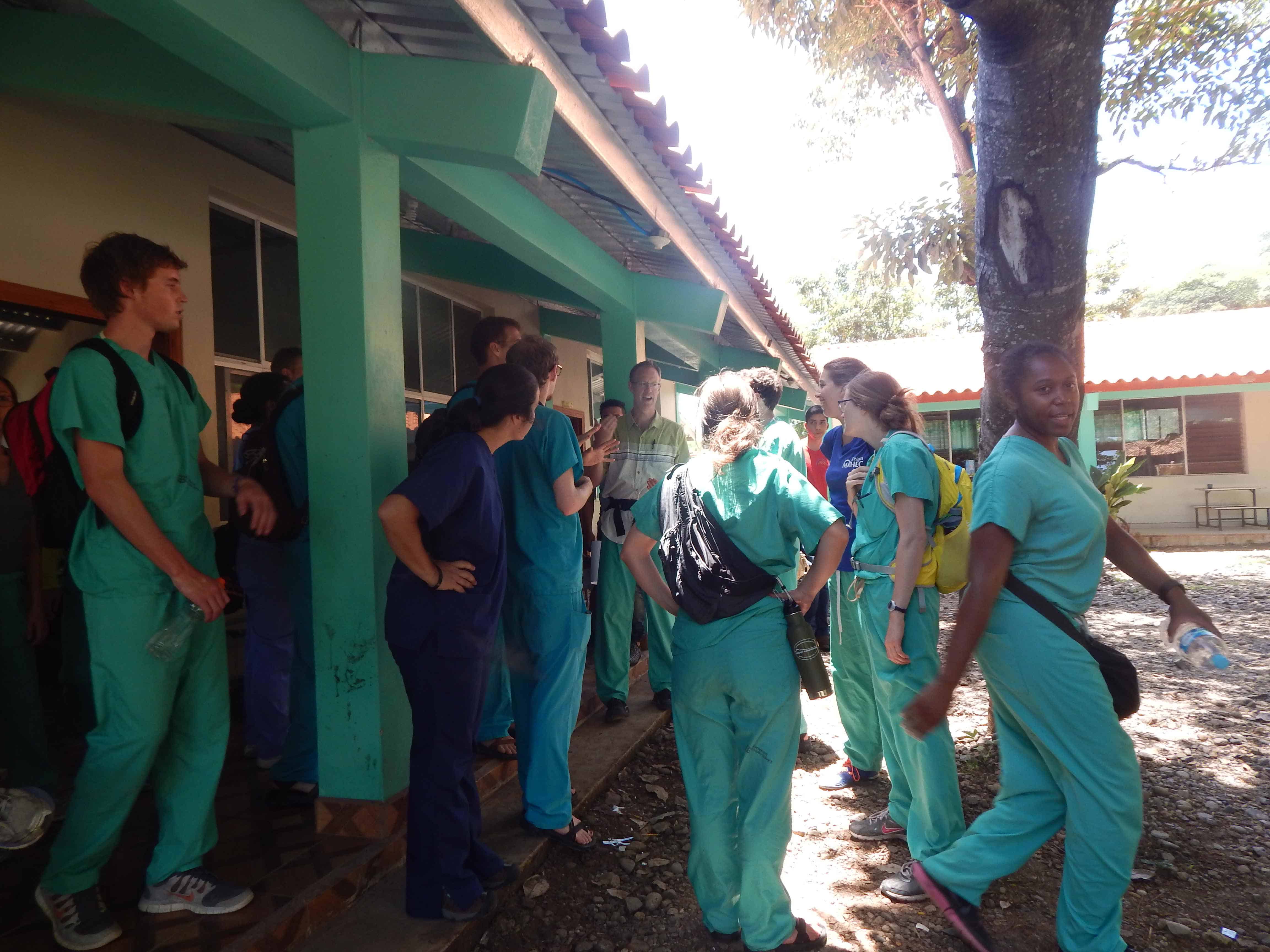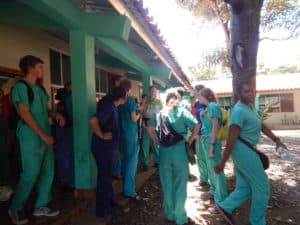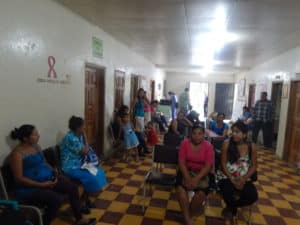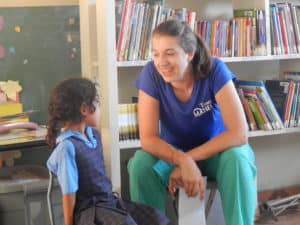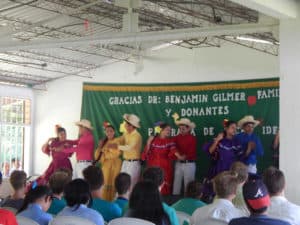The first challenge for the University of Wyoming medical and service team that recently came and visited the small community of Agua Salada (translated “Salt Water” – really interesting since you would need to cross all of El Salvador to find saltwater) is getting them there. The 22 participants (20 women and 2 men) plus six translators packed into the bus in La Esperanza to begin their trek. It’s all downhill, not very far really, but taking over two hours. Even though the highway is being rebuilt and paved, you cannot travel fast along the treacherous curves. This is called the “highway,” and at first everyone laughs at that term until they experience driving on what is not the highway. We arrive at the nice, modern-looking, clinic in Concepción. Everyone piles off the bus. They think they’ve arrived and there are expressions of relief. Their expressions droop, however, when they realize their bags are being packed into the beds of pick-up trucks. The bus won’t go where you are going. You’re not there yet!
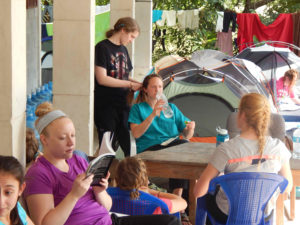
The luggage is delivered first with as many people as can fit into the cabs of the trucks. An hour later, the trucks return and they get packed up with people: seven or eight in the beds and four or five into the cabs. I’m driving one. For safety’s sake I tell those in the bed to sit down or hold on. They laugh at me and I crack a knowing smile. We turn off the ‘highway’ to begin the three to five mile per hour crawl to Aqua Salada. Over the ruts and rocks the truck launches them off their feet or bounces them off their behinds. I hear their screams and hoopla. Someone from the backseat of the cab says they want to be in the bed when we return next week. It’s better than the best amusement park ride. We come to the river. Someone from the bed yells out, “Where’s the bridge?” just as I enter into the water with the truck. The water is a little high for the dry season. “This is awesome!”
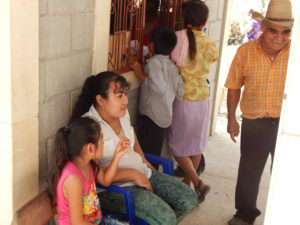
We arrive at the Agua Salada clinic facility. They grab their suitcases and gear. Most definitely exhausted, their minds racing with all the newness they are taking in, they now need to set up their tents and sleeping bags. The clinic is really nice, well designed, but not really equipped for over thirty people. They will be tripping over one another all week. This makes boot camp look like a five-star luxury hotel. But, they are well received by the people living in this forsaken and forgotten territory. What the team will put up with for a week is nothing as compared to what the people who live here endure every day.
But, that’s why they’ve come. The Agua Salada residents and those from the surrounding small villages are always enthusiastic and grateful for the arrival of Wyoming. Most wouldn’t be able to find the state on a US map, but they well know the hearts and souls of those who have journeyed to visit them. There is a sense of celebration among the community that finds varied expressions during the week. Over five-hundred persons will visit the clinic. Many will see Larry the dentist who has been coming since before the clinic was built. Linda, a nurse practitioner now retired from the University, leading the team, knows everyone. Indeed she’s watched many grow up. They’ll have a special luncheon for the parteras (midwives), and all week long the children will be playing soccer with the gringos. It feels like the circus has come to town. I take that back. It’s more like a homecoming. It is a time for catching up, a time to become reacquainted, and a time to really enjoy a very special, perhaps even sacred, friendship. Laura and I will meet up with them at the school scholarship festivities.
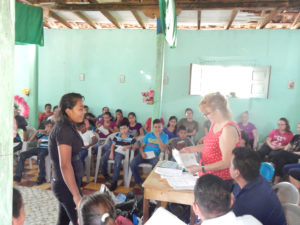
We take going to school for granted in the US. But for the people in Aqua Salada and the surrounding area, even the small costs associated with public school – backpacks, notebooks, uniforms, shoes (yes shoes), and other materials – can be overwhelming for a family without any income. Wyoming has responded well to the need, setting up a scholarship program to fund these families. It’s not blind charity. It’s a covenant where the students and the families commit to community service and the maintenance of good grades. This makes the relationship an honest one — one in which the travelers from Wyoming and the residents of Agua Salada find mutual respect and commitment. This program is for the children attending what is referred to as ciclo comun – seventh, eighth, and ninth grade. Very few will go beyond those grades because it is just too difficult for the families. They would have to travel to one of the municipalities to go to High School and earn a degree. The transportation cost is prohibitive. Wyoming is now also responding to this need as well. It is a larger commitment on the part of Wyoming, but one they are pleased to be able to make. The most promising students, the ones who have a burning desire to be educated, will now be able to live their dream and receive a high school education. They will become honored in their families and their communities, and Wyoming will have a legacy of noble value.
All the scholarship students, their families, and the team from Wyoming gathered in the church for the ceremonies. Records were turned in, contracts were signed, and the scholarships administered. Some of the students spoke of the incredible gift of education and expressed their gratitude to Wyoming for the trust that had been given to them. I watched an older man’s hand sign his commitment for his granddaughter. His hand was shaking, but his smile was one of profound dignity. I thought I saw a small tear in his eye as he placed an “X” on the signature line. Perhaps he had missed the opportunity to read and write, but his granddaughter would not.
Back across the bumpy road and the river the service team would travel. In another day they would be thousands of miles away, comfortable in soft beds, their privacy secured. It will be a long time, however, before they forget their experience among the people of Agua Salada. The people of Agua Salada will, of course, never forget. They will be ready to welcome them back when they return.




